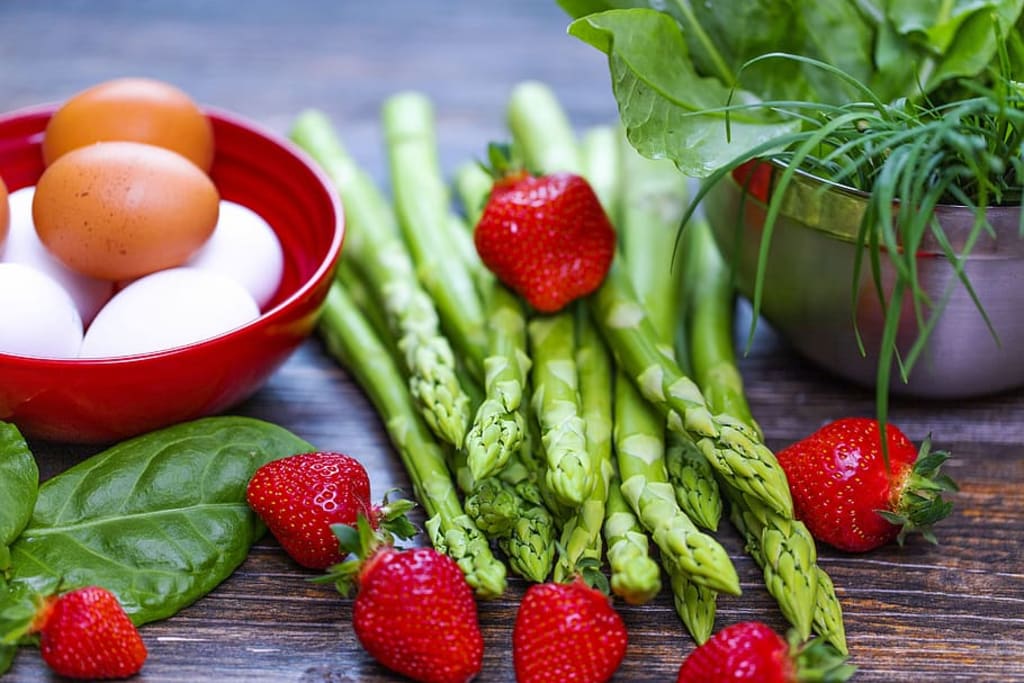Food and nutrition.
Food and nutrition

Indtroduction
Food and nutrition are essential components of a healthy lifestyle. Proper nutrition is necessary for the growth and maintenance of the body, while a balanced diet can help reduce the risk of chronic diseases such as heart disease, diabetes, and cancer. In this article, we will explore the importance of food and nutrition, as well as some key considerations for maintaining a healthy diet.
The Importance of Food and Nutrition
Food provides the energy and nutrients necessary for the body to function properly. Nutrients, such as vitamins, minerals, and amino acids, are essential for building and repairing tissues, regulating bodily processes, and supporting the immune system. Additionally, a balanced diet can help reduce the risk of chronic diseases by providing the body with the necessary nutrients and minimizing the intake of harmful substances such as saturated and trans fats, added sugars, and sodium.
A healthy diet should include a variety of nutrient-dense foods from all food groups. These include fruits, vegetables, whole grains, lean proteins, and healthy fats. By incorporating a variety of foods from each food group into our diets, we can ensure that we are getting all the necessary nutrients to maintain optimal health.
Key Considerations for a Healthy Diet
There are several key considerations for maintaining a healthy diet. These include:
1. Balance: A balanced diet should include a variety of foods from all food groups. This helps ensure that we are getting all the necessary nutrients and can help reduce the risk of chronic diseases.
2. Moderation: Moderation is key when it comes to eating. While it is important to include a variety of foods in our diets, it is also important to eat in moderation. Overeating can lead to weight gain and other health problems.
3. Portion Control: Portion control is an important consideration for maintaining a healthy diet. Eating too much of any food, even healthy foods, can lead to weight gain and other health problems. It is important to be mindful of portion sizes and to listen to our bodies when we are full.
4. Nutrient Density: Nutrient-dense foods are those that provide a high amount of nutrients relative to their calorie content. Examples include fruits, vegetables, whole grains, lean proteins, and healthy fats. These foods should make up the majority of our diets.
5. Hydration: Hydration is an important consideration for maintaining a healthy diet. Drinking enough water can help regulate bodily processes and support overall health. It is recommended that adults drink at least eight cups of water per day.
6. Limiting Intake of Harmful Substances: Harmful substances such as saturated and trans fats, added sugars, and sodium should be limited in the diet. These substances can increase the risk of chronic diseases such as heart disease, diabetes, and cancer.
In addition to these considerations, it is important to be mindful of individual dietary needs and preferences. Some individuals may have specific dietary requirements due to medical conditions, allergies, or other factors. Consulting a healthcare professional or registered dietitian can help ensure that dietary needs are being met.
Conclusion
In conclusion, food and nutrition play a vital role in maintaining a healthy lifestyle. A balanced diet that includes a variety of nutrient-dense foods from all food groups can help reduce the risk of chronic diseases and support overall health. Key considerations for maintaining a healthy diet include balance, moderation, portion control, nutrient density, hydration, and limiting the intake of harmful substances. By making mindful choices about our diets, we can support our health and well-being for years to come.
A healthy diet has been shown to reduce the risk of depression, anxiety, and other mental health conditions. Additionally, a balanced diet can improve energy levels, mood, and cognitive function.
Furthermore, it is important to consider the environmental impact of our food choices. The production of food can have a significant impact on the environment, including the use of natural resources, emissions of greenhouse gases, and pollution. Choosing sustainably produced foods, such as locally sourced and organic foods, can help reduce the environmental impact of our diets.
It is worth noting that access to healthy and nutritious food is not always equitable. Food insecurity and food deserts, where healthy and affordable food is not readily available, can have negative impacts on the health and well-being of individuals and communities. It is important for governments, businesses, and individuals to work towards improving access to healthy and affordable food for all.
In summary, food and nutrition are essential components of a healthy lifestyle. A balanced diet that includes a variety of nutrient-dense foods from all food groups is important for maintaining optimal health and reducing the risk of chronic diseases. Key considerations for maintaining a healthy diet include balance, moderation, portion control, nutrient density, hydration, and limiting the intake of harmful substances. It is important to recognize the impact of food on our mental health and well-being, as well as the environmental impact of our food choices. By making mindful choices about our diets and working towards improving access to healthy and affordable food, we can support our health and well-being while also promoting sustainability and equity.
About the Creator
Love The Green
Welcome to my page,I hope to share my experiences, insights, and knowledge with fellow nature enthusiasts.Together, we can celebrate the wonders of the natural world, and work to protect and preserve it for future generations to enjoy🌿🌲






Comments
There are no comments for this story
Be the first to respond and start the conversation.